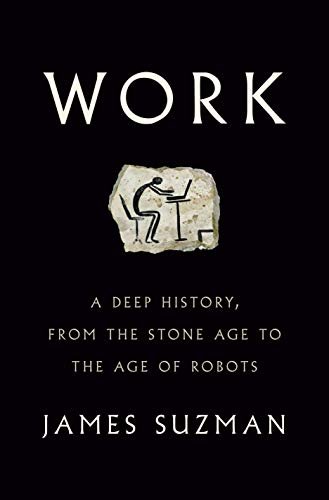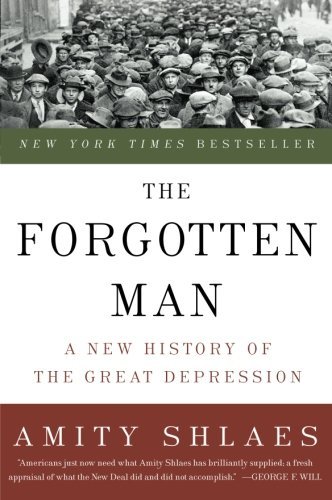I set quarterly goals for myself to not only write but also to read. In Q4 2021, I read 10 books (more on those below), but also crystalized a trend that I’ve been noticing for a couple of years: there is a stark difference between nonfiction published pre-2016 and afterwards. I’ve started referring to it as the Nonfiction Divide.
Before 2016 and the Trump presidency, the capitol riot, and the elections or coupes that brought populist leaders to positions of power around the world, there was a general sense in nonfiction books that the fundamentals of modern technocratic democracies were intact.
Before 2016, science didn’t need to be defended, most social problems were being solved (even if too slowly), the ‘isms were in retreat, and the future was a up-and-to-the-right line graph of progress. There was a very real sense that society in the US and abroad was leading inexorably to fantastic human achievements like discovering life on alien planets, eliminating poverty, and curing communicable diseases. You see this most in the ending sections of pre-2016 nonfiction books that deal with hard topics. It’s formulaic: authors write about a very thorny problem (racism, the history of colonialism, or contraception say) and then end their book by proposing solutions which invariably take the form of exhortations and appeals for more of what we’ve been doing: more science, more research, more education, more open-minded pursuit of truth.
Today, those appeals feel disingenuous and naïve. How can rational, intelligent authors in 2022 honestly believe that ideals like “being open” or “accepting complexity” will win the day in the face of growing polarization? I have a family member who I love and respect, but I can’t talk to about vaccines because they believe they are lethal. One of my best friends has been talking to me seriously about leaving the US out of concern for his family’s long-term safety. A couple of weeks ago, I switched to using an end to end encrypted chat service for conversations with my closest friends and family. I regularly see Tweets from people in my generation casually referring to the coming civil war in the US and a recent Harvard Youth Poll suggests that I’m not living in a bubble [source]. I’m concerned that the unvarnished things I say in those threads could be used against me by a malevolent state, company, or political group in the future. I don’t think I have subversive beliefs, but words can be dangerous.
Perhaps it’s just that I’m now a parent, but I think that the world today is objectively more threatening than it did even as little as 5 years ago and I’ve been seeking out reading materials that take that into account. (If you haven’t read them, I highly recommend How Democracies Die and Anne Applebaum’s Twilight of Democracy.) Mostly this has meant not reading books about social issues that were researched and written prior to 2016 - they no longer feel real.
With that alarming caveat out of the way, here are the best books that I read this quarter. Only a couple were written before the nonfiction divide, and I intend to be increasingly selective on that front in Q1. As always, if you have any suggestions for nonfiction books that you enjoyed, please send them my way.
★★★★★ The Genetic Lottery: Why DNA Matters for Social Equality
If you read only one book from this list, read this one. This is an incredible, even-handed, and nuanced treatment of a topic very near to my heart: genetic diversity and life outcomes. In contrast to the provocateurs like Charles Murray, Harden takes a deeply humanitarian, but scientifically rigorous look at the effect of genetics on how we all turn out. It is equally humbling and enlightening.
★★★★☆ Work: A Deep History, from the Stone Age to the Age of Robots
If you enjoyed Debt: The First 5,000 years, you’ll like this. Suzman doesn’t fall prey the lazy historical thinking about work as a specific creation of industrialization. He instead digs deeper into human history to try and pinpoint when exactly the concept of work (as distinct, say, from “surviving” or “existing”) emerged, what it meant for people then, and what it means to us today. The book is more philosophical than I expected, but it’s better for it.
★★★★☆ The Forgotten Man
I deeply enjoy reading books that update my worldview in some material way. It’s well and good to collect trivia and it’s great to read for no other reason than you like a story, but I get the biggest thrills out of reading a convincing and well-researched argument that my existing worldview is incorrect in some way, and then accepting or rejecting the argument on the merits of the facts. This is one such book. If you think you know about the depression in America, Shlaes has a different take and he does an excellent job of both telling compelling stories about real humans and diving deep into the details that support his broader arguments.
★★★★☆ In Your Defense
This one didn’t upend any of my pre-existing understandings of the world, but it was a page-turner and the stories that Langford tells are equally empathetic and factual. You feel for all of her protagonists (even the bad guys). Books like this make us all better humans by telling the stories of our fellow man in a factual, but tender way.
★★★★☆ Factfulness: Ten Reasons We're Wrong About the World - and Why Things Are Better Than You Think
This one falls prey to the nonfiction divide. It’s engaging stuff and I actually updated a bunch of world views, which was fascinating, but the end just rings hollow. Even the title seems out of step with our times. In a world killing itself with worry about fake news, it’s darkly humorous to think about any one person knowing the “important facts” of the world. As we’ve all seen recently, too many people have followed Rosling’s advice, done their own research, and ended up with far more distorted views of the world than he might have ever thought possible.
★★★☆☆ Nurture Shock: New Thinking About Children
This must have been really revolutionary to read when it was published, but time hasn’t been kind to all of Merryman and Bronson’s findings. Things like growth mindset have failed to reproduce in subsequent studies, for instance. But on the whole, it’s a good read and like many pop-sci books, it’s an easy read. I am personally really looking forward to reading Emily Oster’s new book (The Family Firm) for my next dose of data-driven parenting advice.
★★★☆☆ The Verge: Reformation, Renaissance, and Forty Years That Shook the World
Although I think some of Wyman’s arguments about the impact of this particular time period are a bit exaggerated, this is still an engaging read. I took away a profound sense of just how complicated, modern, and advanced the world of the late 15th and early 16th centuries were. In the midst of reading this book, it’s easy to forget that you’re reading about an event that occurred in 500 years ago because the characters and events are retold with such clarity and humanity.
★★★☆☆ The Sirens of Mars: Searching for Life on Another World
I was really hoping that Sarah Johnson would rock my world in the same way as Kevin Hand did in Alien Oceans. Alas, this was interesting, but not revolutionary. If you don’t know much about the history of Mars exploration, you’ll learn a bunch, but for anyone that’s interesting in space exploration and has read a couple of recent books on the topic, there isn’t a lot that’s new here.
★★★☆☆ Bargaining for Advantage: Negotiating Strategies for Reasonable People
Pretty good, although it falls into the “business book” trap of telling lots of “just so” stories that feel a bit like humble-brags by the author. I also couldn’t escape the feeling that the main points could have been more concisely encapsulated in a shorter blog post. But such is the nonfiction genre, I suppose.
★★★☆☆ The Undocumented Americans
I really enjoyed this, but I didn’t learn anything profoundly different or life-altering. It’s important and healthy to spend time in other people’s shoes, though, and Villavicencio does a great job of telling the stories of real people.









